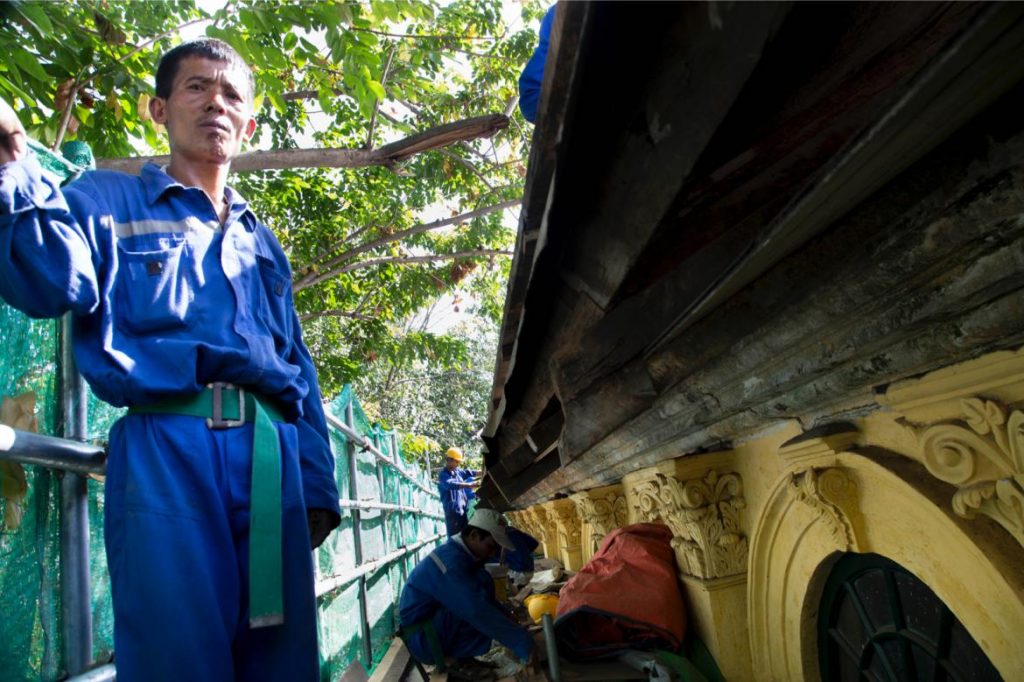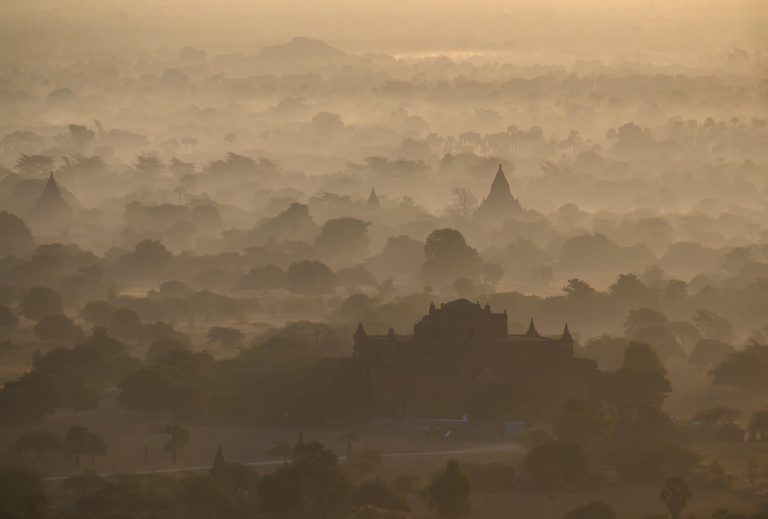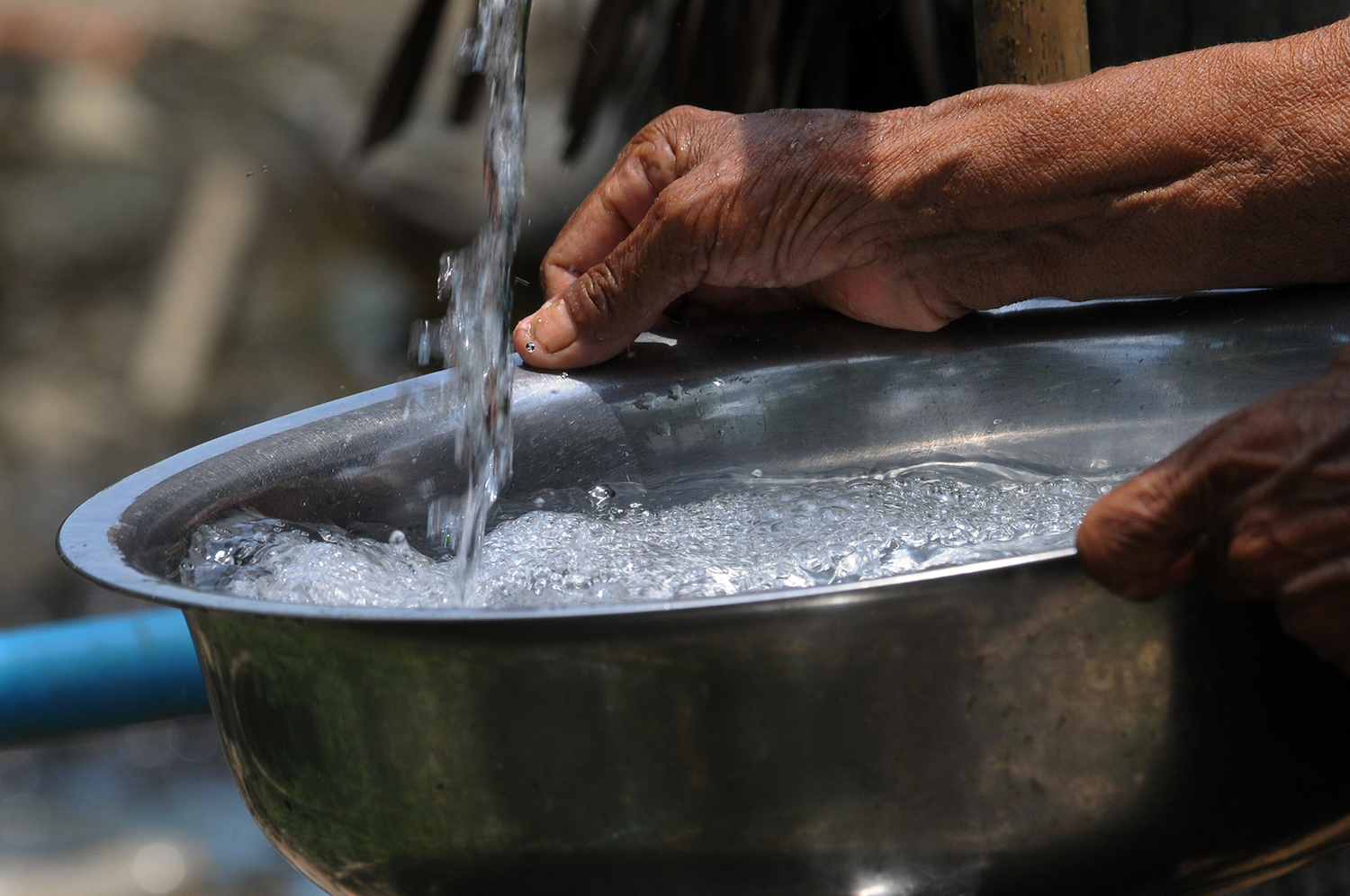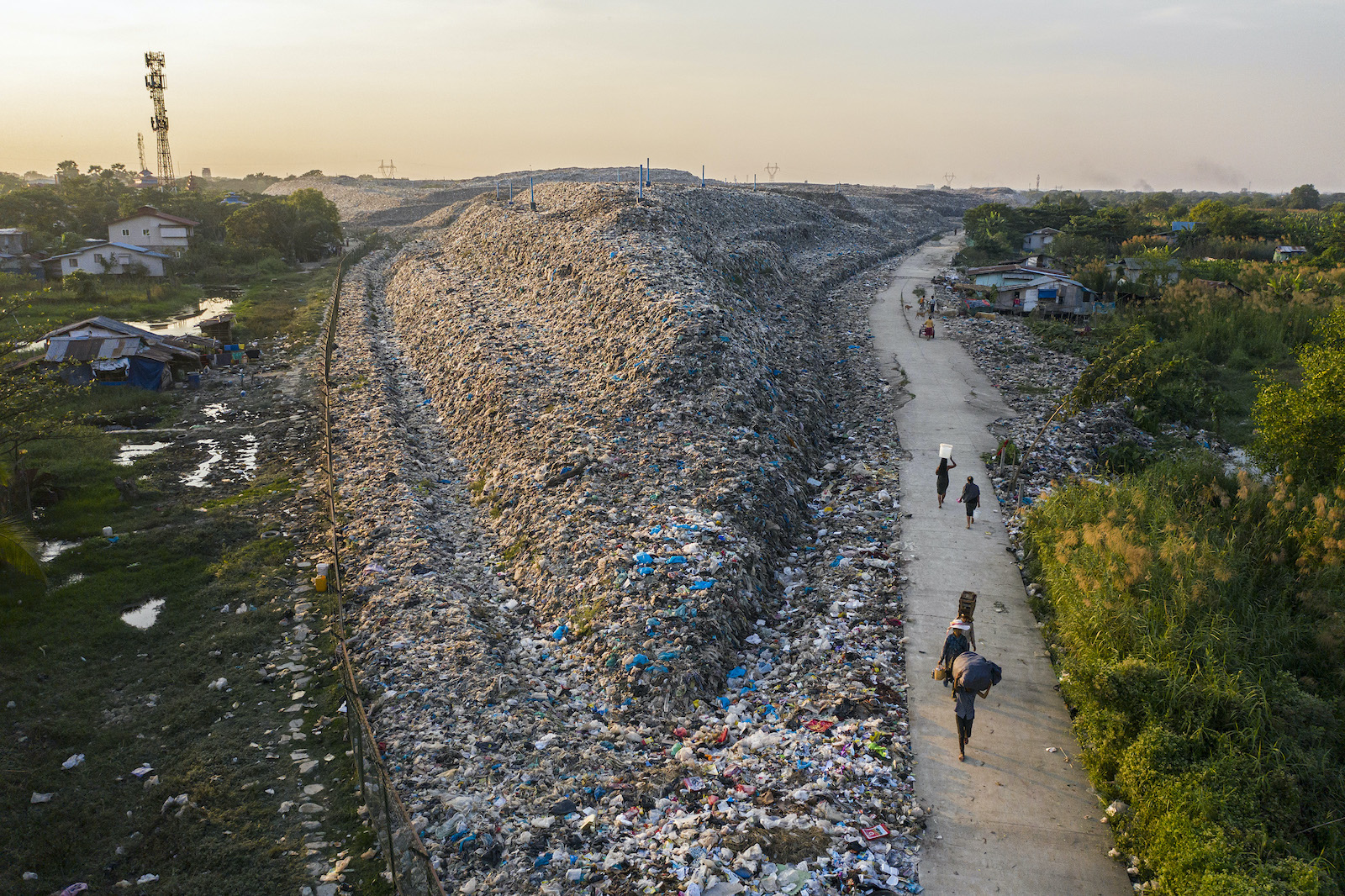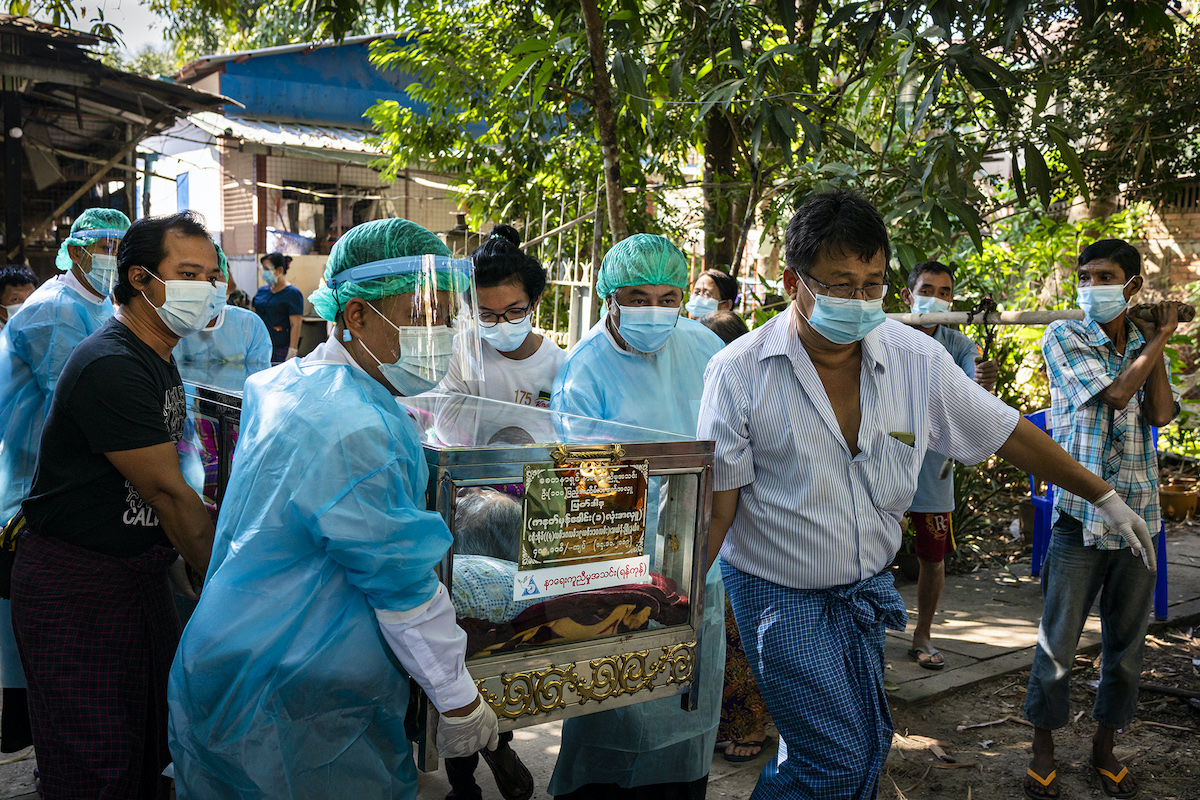The campaign by the Yangon Heritage Trust to preserve the city’s architectural treasures includes working closely with the residents of buildings under threat of demolition.
The Chaudhary family has been living at 491-501 Merchant Street for generations, running a teashop in a century-old two-storey building between 39th and 40th streets. “My grandparents came from India,” said Ma Ravita Chaudhary. “We used to have a small hostel and restaurant here before U Ne Win’s time. After he took power they said we were foreigners and took away our FRC (Foreign Registration Certificate) and told us to close the hotel-restaurant, so we opened a small teashop instead.”
The Chaudharys chose to stay in Myanmar during the U Ne Win era, but the owner of the building in which they rented their shop returned to India. Throughout the lean years of “The Burmese Way to Socialism” they paid a nominal rent of less than K1,000 a month that went towards the upkeep of a neighbouring mosque.
When the economy began to pick up after the change of government in 2011, the grandson of the building’s owner returned to Myanmar with big plans to turn his inherited property into a multi-storey development. Since the law prohibits property owners from evicting tenants, he offered each family a unit in his new building. At first the 13 families at 491-501 Merchant St were interested, but then they had second thoughts.
“When we saw that the space offered would be much smaller we decided against it,” said Ma Ravita. The 12 members of the Chaudhary family live and sleep above their teashop. There are about 70 other people living in the building, including the descendants of the legendary outspoken journalist Ludu Sein Win, who died in 2012 aged 72. The building’s Buddhist, Christian, Hindu and Muslim families were united in their opposition to losing their heritage home. They went to the Yangon Heritage Trust for advice.
Luckily for the doomed building’s residents, the British charity Turquoise Mountain was looking for just such a project when it set up shop in Yangon in November last year. Its first port of call was the Yangon Heritage Trust, established by U Thant Myint-U in 2012 with other like-minded individuals to help preserve Yangon’s architectural treasures, most of which are in the downtown area.
Support more independent journalism like this. Sign up to be a Frontier member.
Thanks in part to U Ne Win’s socialist policies, that transformed Myanmar from Southeast Asia’s most vibrant economy in the early 1900s into a backwater by the mid-1960s, much of that architecture has been preserved, albeit in decrepitude.
“The project came from there (YHT), really, because we were looking for a project to get started on quickly, as a pilot,” said Harry Wardill, Myanmar director of Turquoise Mountain. The charity was looking for a heritage property it could renovate without evicting the tenants. YHT introduced Turquoise Mountain to the community at 491-501 Merchant St.
“The YHT has done a really great job in terms of bringing some people together, in terms of putting halts to demolitions, lobbying the government, but they don’t really have the practical experience of doing some of these projects,” Mr Wardill said.
Turquoise Mountain was established in 2006 by Britain’s Prince Charles and former Afghan president Hamid Kazai to regenerate the old city of the Afghanistan capital, Kabul, where it has renovated more than 100 heritage buildings.
With donor funding and the support of the YHT, the charity has overseen the renovation of 491-501 Merchant St. “The main breakthrough was lobbying the YCDC (Yangon City Development Committee) to give us permission to do it,” Mr Wardill said. This was challenging, because the land owner vehemently opposed the project.
“To be fair to them [YCDC], they stuck their necks out and gave us permission,” said Mr Wardill. “This is a pilot project so I hope it serves as a model for them as well, and they can say we did it here in the interests of the building and the tenants.”
Renovation work began in July and should be completed by March. The project will give the tenants a renovated building with a new roof and upgraded electricity and sanitation without paying a kyat or having to move out during construction. The old structure remains essentially unchanged and the project did not include renovating the interior of the shops.
“I wanted to renovate my place and turn it into a small hotel because I thought the building was beautiful. I had a lot of arguments with the other tenants.”
aw_historical_building-aw_histroa_12_preview.jpg

Residents stand behind the original doors of the historic Merchant Street building. (Ann Wang / Frontier)
“I am saving up my money to invest in renovating our shop,” said Ma Ravita, who is studying strategic financial management in Singapore. Her brother is working in Dubai in hotel management. “We are thinking about opening a small hotel here again,” she said, harking back to the family business in the pre-Ne Win era.
Admittedly, the Turquoise Mountain project at 491-501 Merchant St is not a sustainable model for the refurbishment of other heritage buildings in downtown Yangon. The project will cost more than US$200,000 and was financed by donations.
A survey by the YHT found that more than 67 percent of the residents of privately-owned heritage buildings in Yangon want their property to be renovated. Had their landlords offered to demolish the buildings and give them a unit in a new, multi-storey development most would have accepted because they have no other options.
There are many legal obstacles to renovating heritage properties in Yangon, including residents owning single apartments in buildings owned by absentee landlords. The Permanent Residency Law protects tenants by making it illegal for property owners to evict them. This means that neither party has an incentive to renovate a property, leaving it at risk of falling into decay until declared unsafe by the YCDC and targeted for demolition.
It will be up to the next government to propose legislation that facilitates a gentrification program for downtown Yangon that might exclude the eviction of low-income families that the term implies. Dr Kyaw Lat, an advisor to the YCDC in urban development, has for decades been advocating a Commonly-Owned Property law that would enable residents of a building to establish a cooperative that would give them legal claim to the property while also enabling it to be used as a guarantee for a bank loan to cover the cost of renovation. Of course, getting such a loan is another challenge.
Another option would be a law granting residents leasehold rights to their property. “In the UK they had a similar problem and they brought in something called the leasehold format,” said Josephine Price, managing director of Anthem Asia, a private holding company investing in Myanmar.
“If you could show that you have been living in the property for some number of years you were entitled to purchase the freehold from your landlord, and that was a major change that allowed a lot of property reform to take place,” Ms Price told a recent seminar on heritage preservation in Yangon.
The absence of a suitable legal framework has not prevented some gentrification projects in downtown Yangon. Edwin Briels, the Myanmar manager of Khiri Travel, invested his money in renovating and renting out a century-old, two-storey property on 44th Street (the only recently-painted building on the block). When Mr Briels saw that the top floor of the building was vacant he approached the owner with a proposal to lease it for five years, renovate it and rent it out.
There were legal risks. Myanmar law stipulates that a property can only be leased for a year. “Of course I checked on the landlord’s background, but sometimes you just have to have a little faith in people,” Mr Briels said. “Even if the law was very clear, if somebody was not following the law, what are you going to do? Sue him,” said Mr Briels, who has lived in Myanmar for more than 10 years.
It is not only foreigners who are renovating buildings in the downtown area. Ko Pyae Phyo Naing, 28, whose family bought an apartment in a heritage building on Merchant Street near 29th Street a few years ago, was shocked to discover that the property had been targeted for demolition by the YCDC. “Apparently, everyone else had agreed to the demolition and to build a new one,” he said. “For the YCDC it was already settled, but I told them I wanted to renovate my place and turn it into a small hotel because I thought the building was beautiful. I had a lot of arguments with the other tenants.”
Ko Pyae Phyo Naing turned to the YHT for help and it introduced him to a structural engineer who said he could safely renovate his flat. The result is of the renovation is The Willow Inn, a tasteful niche hotel that opened eight months ago. Ko Pyae Phyo Naing remains unclear about what the YHT did that enabled him to proceed with his dream project.
“I don’t know what they did, but after I approached them the YCDC didn’t come to talk to us about demolition anymore,” he said.


